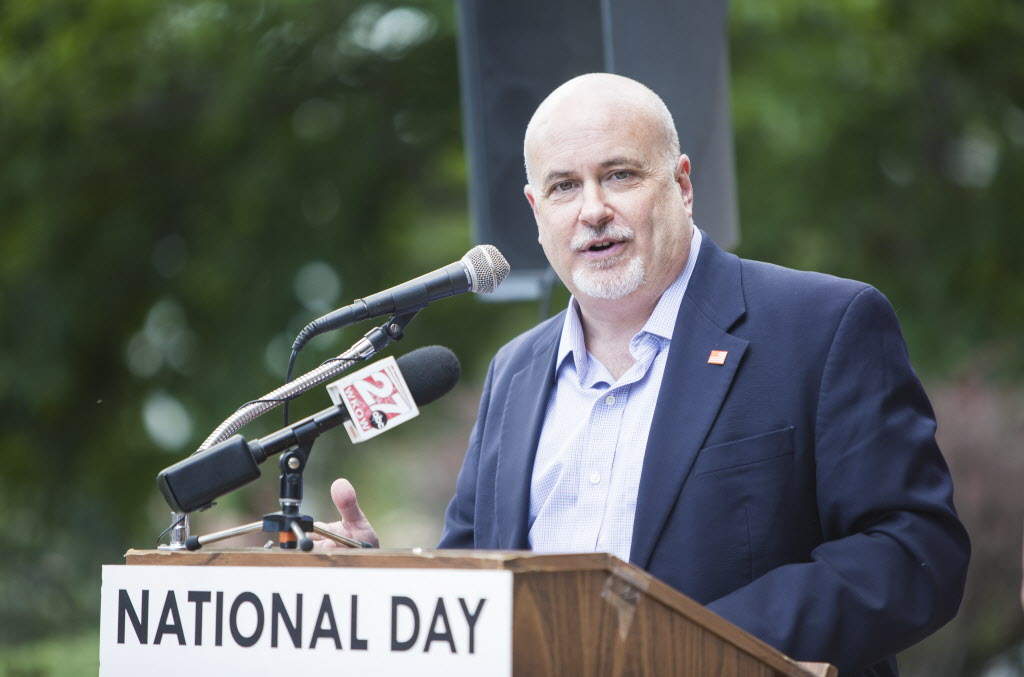U.S. Rep. Mark Pocan questioned Dems’ chances of winning the 7th CD in an upcoming special election, saying the northern Wisconsin district has been gerrymandered to the GOP’s benefit.
Pocan told the Madison Rotary Club Wednesday the 7th CD had become a “tougher district” for Dems to win after Sean Duffy represented the district after more than four decades of Dem U.S. Rep. David Obey. And he blamed the practice of allowing politicians to pick their voters for leading to a situation in which “there isn’t a competitive district” in the state.
Duffy, R-Weston, announced Monday he will resign Sept. 23, prompting a host of politicians to weigh a bid to replace him.
“Anything is possible, I guess, but probable and possible might be two different things,” he told reporters after being asked if he thought Dems could win the 7th CD.
>> WisPolitics is now on the State Affairs network. Get custom keyword notifications, bill tracking and all WisPolitics content. Get the app or access via desktop.
While Pocan bemoaned gerrymandering’s role in elections, he also criticized the role it has played as the “single biggest effect” in driving legislative dysfunction in both Washington and Madison.
“It’s hard for people to speak out about things, because they can be challenged in a primary, and there’s nothing uglier, honestly, than a primary election,” he said.
He singled out the Tea Party, a group of conservative Republicans bolstered by a number of GOP lawmakers who knocked off incumbents from their own party in the 2010 midterm elections. The group sprung up initially in opposition to then-President Obama’s economic policies but went on to become a thorn in the side of GOP leadership seeking to pass bipartisan legislation.
“Fortunately… we don’t have a Tea Party on the Democratic side,” Pocan said. “I think we were smart enough, we saw the disruption that it caused and the ineffectiveness while the Republicans were in control to have 10 percent of people holding up things for the other 90 percent.”
Still, members of the Congressional Progressive Caucus — which Pocan chairs — have split with leadership on a number of issues ranging from appropriations to impeachment since Dems re-took the House of Representatives in the 2018 midterms. Pocan conceded that when asked by WisPolitics.com. But he said the difference between his group and the Tea Party was that the CPC was “not there just to say no to things.”
“The big difference is that we like to say yes where the Tea Party liked to say no,” he said.
Pocan also identified infrastructure, lowering prescription drug costs and preventing gun violence as areas he hoped congressional lawmakers could address “in a bipartisan way.”
But he said progress on those three issues would have to come this fall, warning that unless there was “great consensus” — “not two words we use together too often in Washington” — it was unlikely lawmakers would address large-scale policy issues going into a presidential election.


